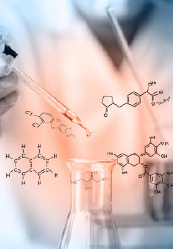Increasing Demand for Packaged Products to Drive Growth
Antimicrobial additives are active agents that when applied during the processing of products, prevent the growth of microbes such as fungi, bacteria, mold, and others. These additives are categorized based on the type of microbial action. Antimicrobial additives stop microorganisms from growing by destroying their cell walls or microbial DNA.
Additives like silver, zinc, and copper come in a variety of ways, including masterbatch pellets, concentrated powder, and liquid suspension, depending on the application. Antimicrobial additives with features such as flammability, non-toxicity, sustainability, environmental friendliness, and high thermal stability are expected to drive the global antimicrobial additives market.
These additives are mainly used to improve the physical and chemical properties of products, as well as to prolong their shelf life while enhancing cosmetic performance and reducing the risk of microbes such as MRSA and legionella. Medical devices, such as urinary catheters, vascular access devices, and enteral feeding tubes, are highly vulnerable to bacteria invasion and bloodstream infection. As a result, medical device manufacturers are employing antimicrobial additives to effectively avoid bacterial colonization on-device component surfaces.
Key Dynamics of Antimicrobial Additives Market
Increased use of antimicrobial additives in plastic products and an increase in infectious microorganisms are driving the global antimicrobial additives market. Antimicrobial additives are increasingly being used in medical devices and appliances, as well as other end-use industries such as packaging, food and beverage, healthcare, personal care, and electronic products. The development of natural-based additives for use in food packaging is expected to offer a lucrative growth opportunity.
Because of the increasing need to combat the COVID-19 pandemic, product demand is expected to rise in the global healthcare and packaging application industries. According to WHO reports, about 125,000 children die each year as a result of foodborne illnesses. Antimicrobial additives are likely to be in high demand as food safety concerns increase.
Regional Developments and Major Trends in Antimicrobial Additives Market
The food antimicrobial additives market is primarily driven by an increasing need for clean labeled preservatives as well as antimicrobials such as ascorbic acid, vinegar, rosemary, and chemicals extracted from natural or organic substances. As a result, manufacturers are investing in R&D to produce clean label antimicrobials with additional assets to improve sales by meeting the rising demand for clean-label ingredients.
Increasing economic growth has increased consumer demand for convenience and processed foods, indicating a demand for food preservatives. Consumers spend a significant portion of their income on processed foods, so they demand nutritious and high-quality food. All these factors are driving the market growth in the region.
Competitive Scenario of Antimicrobial Additives Market
Involvement of large manufacturers as well as numerous small-scale manufacturers around the world, the global market has become highly fragmented. The market's major players have a wide regional reach and a diverse product portfolio to meet a wide range of customer demands. This factor aids the company in maintaining a good market position. There are numerous key players present in the antimicrobial additives market, such as Koninklijke DSM NV, Plastics Color Corporation, Corbion NV, King Plastic Corporation, and Sanitized AG.
Deep-dive Insights on Antimicrobial Additives Market by Polaris Market Research: https://www.polarismarketresearch.com/industry-analysis/antimicrobial-additives-market/request-for-sample


